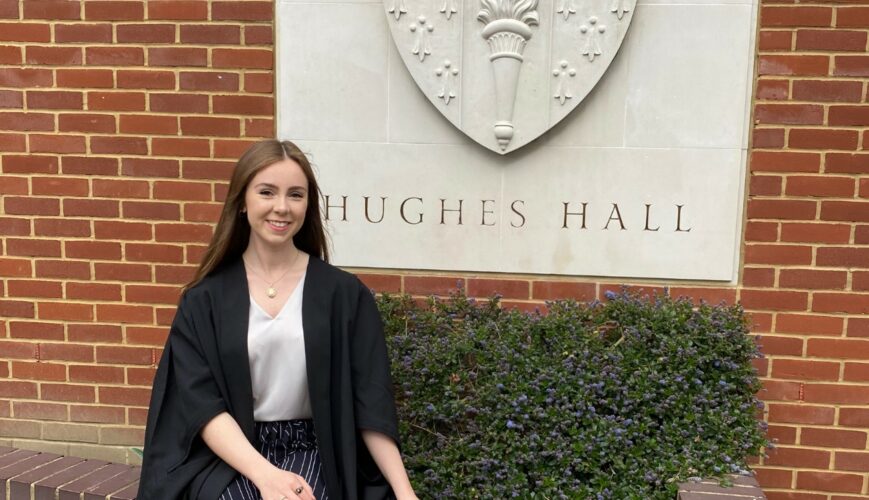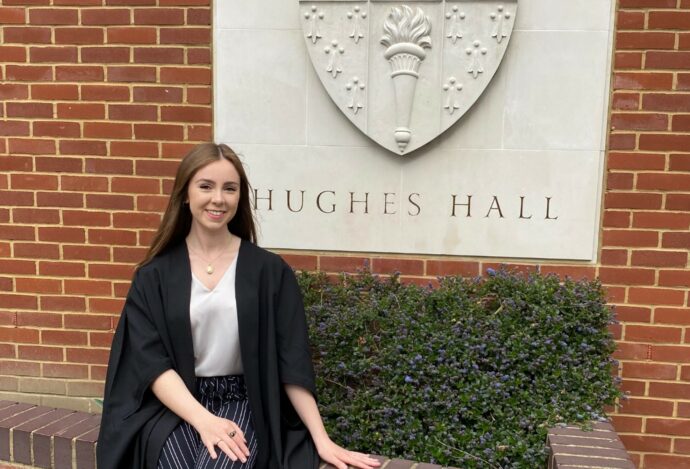Almost half of people with concussion still show symptoms of brain injury six months later, despite being labelled ‘mild’.
Rebecca Woodrow is a third year PhD student in Clinical Neurosciences at Hughes Hall, with a research focus on mild traumatic brain injury. She spoke to us about her work:
“Our work highlights that even the ‘mildest’ traumatic brain injury can lead to vast functional brain changes associated with long-term symptoms. These brain changes aren’t picked up on routine imaging, so this work is important in showing long-term neurological and symptomatic effects of even a single concussion. We hope this leads to concussion being taken more seriously, which opens up opportunities to study the functional effects of repeat concussions, such as in sports injury.”
Even mild concussion can cause long-lasting effects to the brain, according to Rebecca and colleagues at the University of Cambridge. Using data from a Europe-wide study, the team has shown that for almost a half of all people who receive a knock to the head, there are changes in how regions of the brain communicate with each other, potentially causing long term symptoms such as fatigue and cognitive impairment.

Rebecca’s work aims to improve our understanding of neurological conditions that are currently difficult to treat, to help patient care and patient experience in the future.
Mild traumatic brain injury – concussion – results from a blow or jolt to the head. It can occur as a result of a fall, a sports injury or from a cycling accident or car crash, for example. But despite being labelled ‘mild’, it is commonly linked with persistent symptoms and incomplete recovery. Such symptoms include depression, cognitive impairment, headaches, and fatigue. For the full story, see: https://www.cam.ac.uk/research/news/almost-half-of-people-with-concussion-still-show-symptoms-of-brain-injury-six-months-later
Rebecca is from Norwich in the UK and previously studied at the University of Nottingham where she developed an interest in using neuroimaging to better understand disease.
For the research paper, see: https://academic.oup.com/brain/advance-article/doi/10.1093/brain/awad056/7051141
26.4.23





